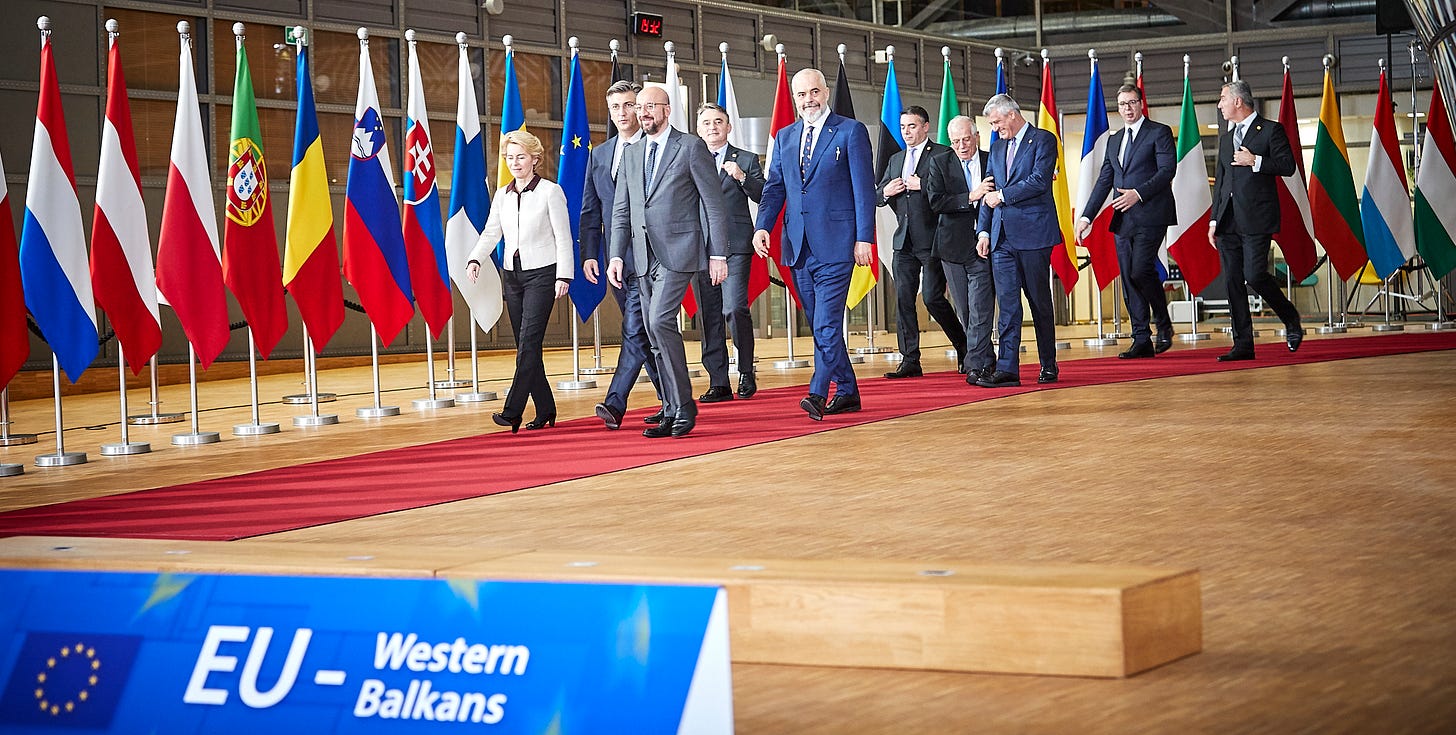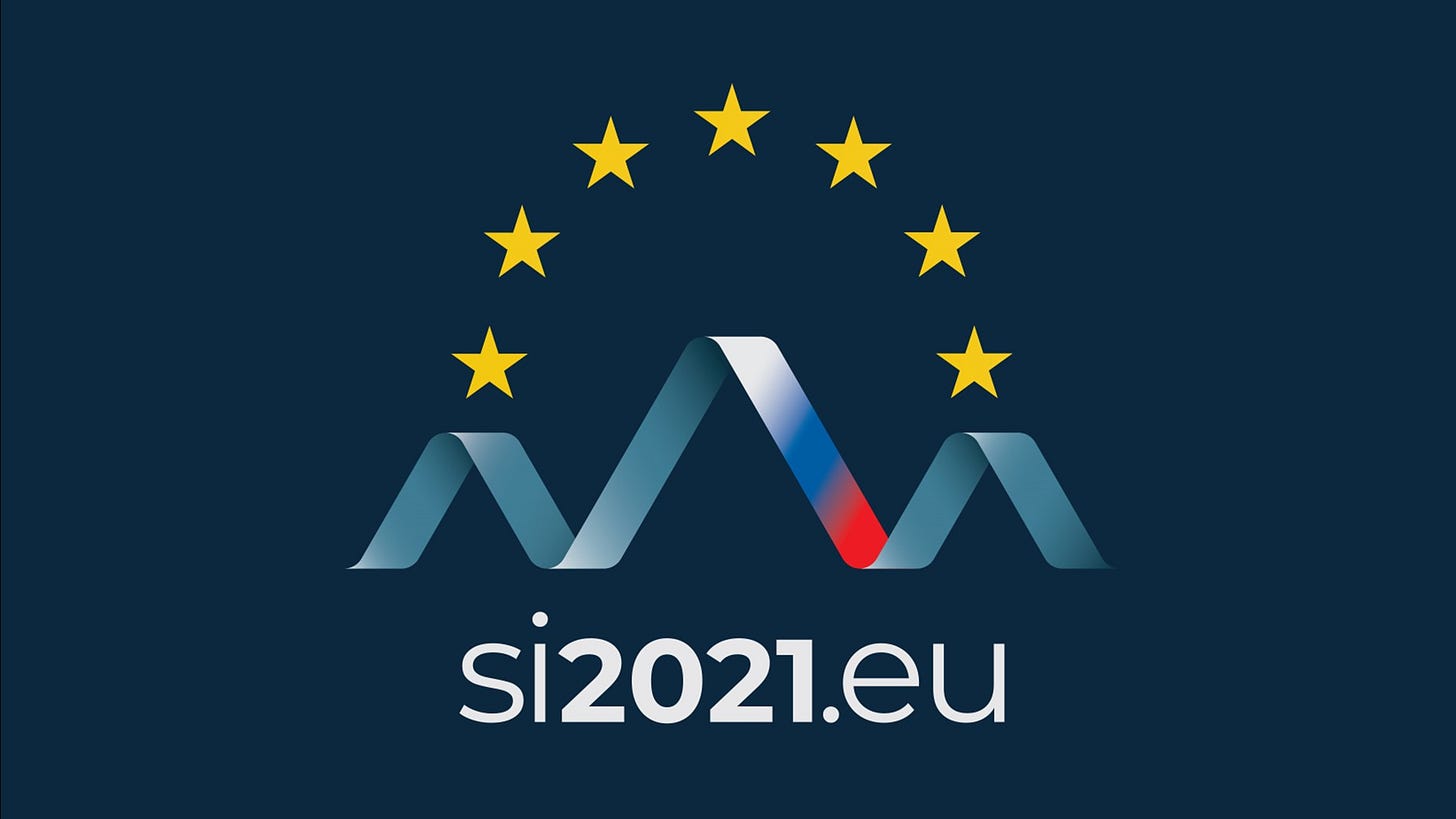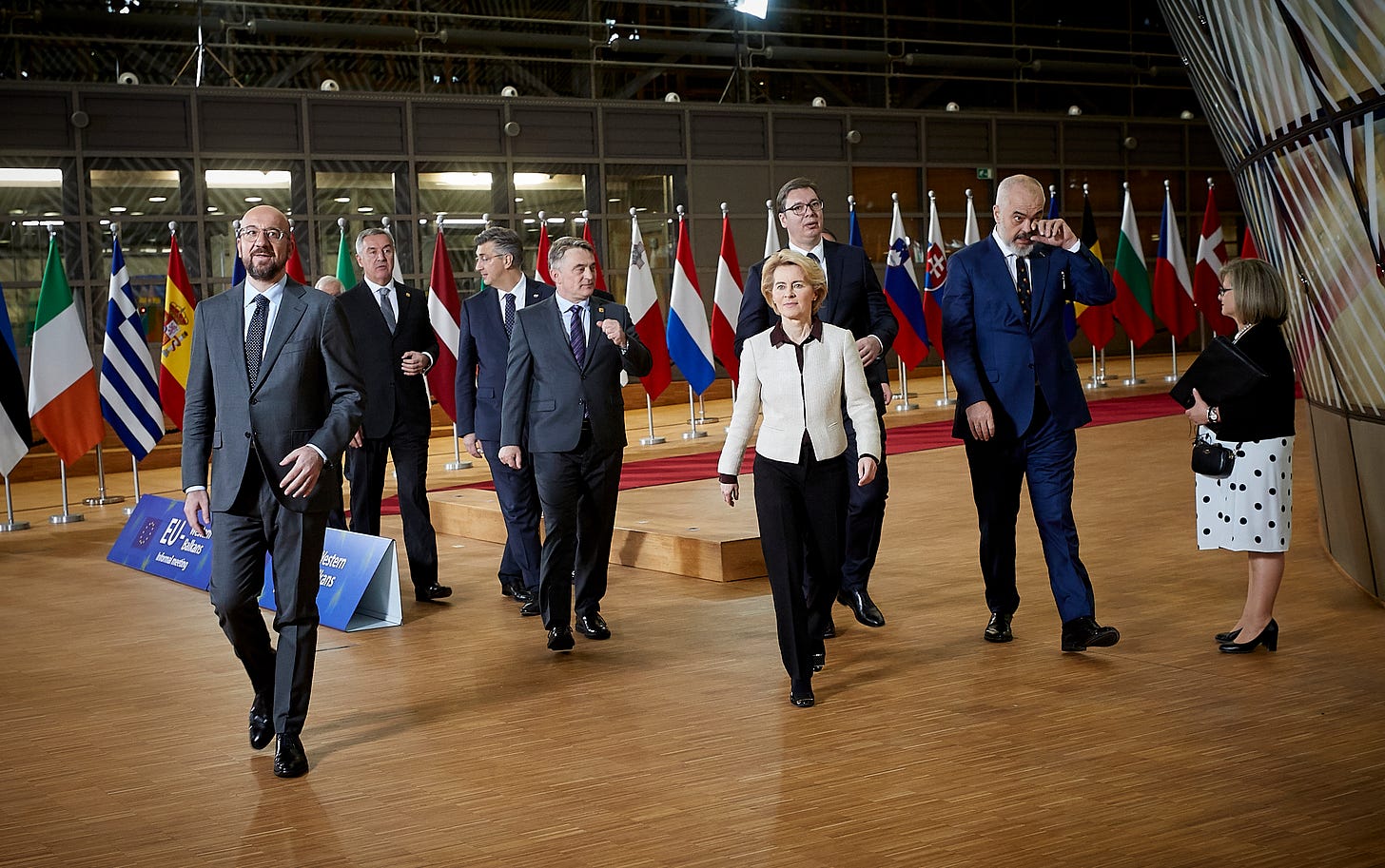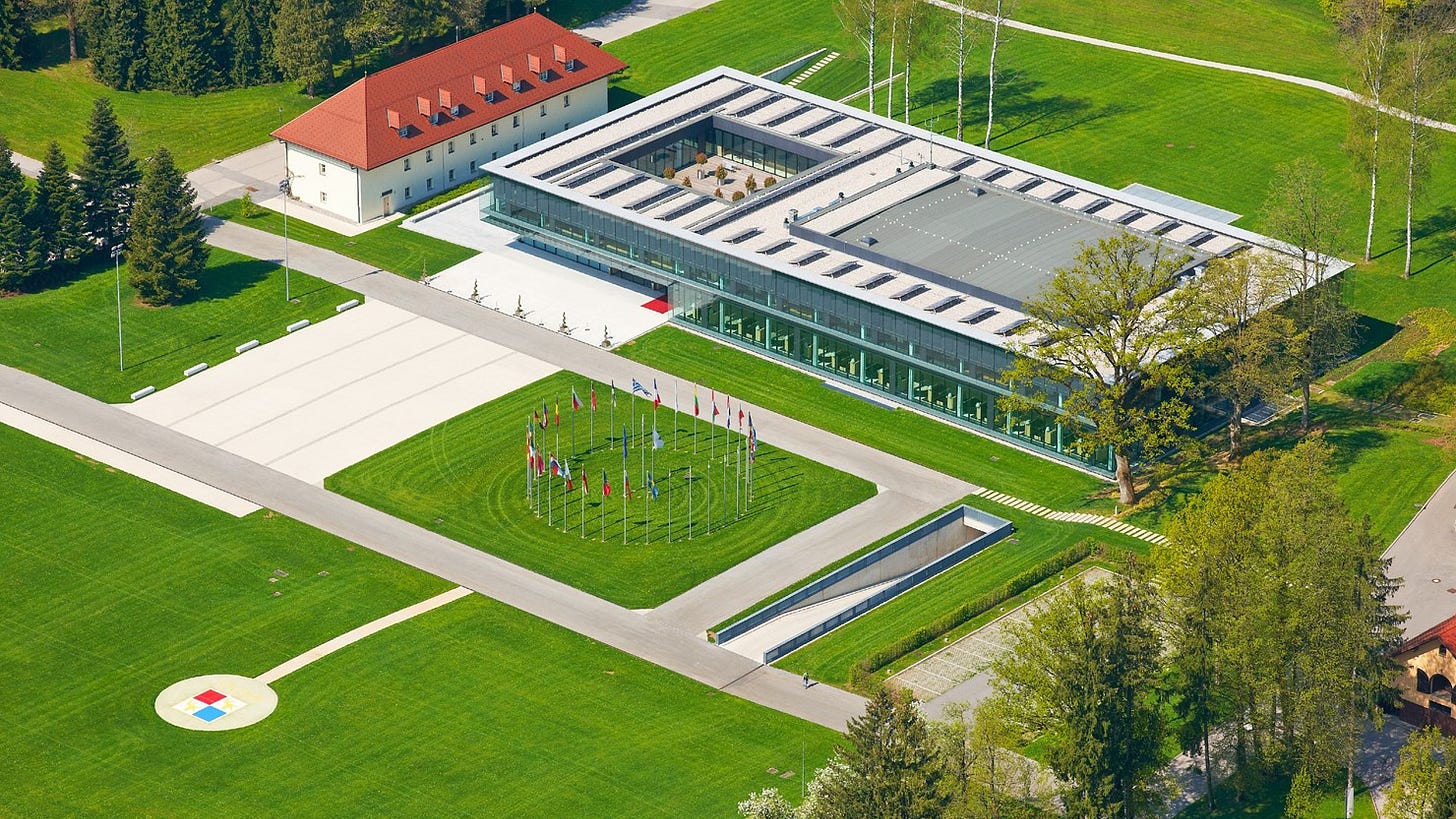S2E8. Pack your bags: we're going to Slovenia!
Thanks to the support of BarBalkans' subscribers, on Wednesday 6 October I will report on the crucial EU-Western Balkans Summit directly from Kranj, in the presence of key political leaders
Hi,
welcome back to BarBalkans, the newsletter with blurred boundaries.
Yes, this time we are leaving for real.
I mean, this has always been a kind of journey and today’s stop is one of the many in our weekly discovery of the Western Balkans.
But the time has come to do something totally new.
Thanks to the support of BarBalkans’ subscribers and of Eunews editorial staff, in a few days I will be in Kranj, a few kilometres from Ljubljana.
From there, I will report on one of the most anticipated events of 2021: the EU-Western Balkans Summit.
This is the crucial event to understand the real prospects of European integration for the region.
I could have told you about it anyway, by consulting sources and online press conferences.
However, BarBalkans is a project that relies on the expectations and support of the readers. Being on site is an added value.
It will be possibile to bring you the voices, the events and the comments from Slovenia only thanks to those who believe in this project and this model of journalism.
You can decide whether and how much BarBalkans can grow and become a better newsletter.
In other words, it is only in the hands of the readers - in your hands - that I can leave for new places and tell you new stories from there.
Well, it is a promise that I made you on a midsummer Saturday and now it is really happening.
Let’s go!
What is it?
The EU-Western Balkans Summit is the most important political event for the relationship between the European Union and the six Balkan countries that are not yet part of it: Albania, Bosnia and Herzegovina, Kosovo, Montenegro, North Macedonia and Serbia.
It is a day when all the leaders of the region, of the European institutions and of the EU Member States sit at the same table.
There, they discuss about the enlargement of the EU in the Western Balkans. About the new challenges, progress and problems to be addressed.
We can say that this is an opportunity for the Balkan leaders to make their voices heard with the heads of State and Government of the 27 Member States.
For the EU, this is a way of strengthening the Balkan confidence in the European project and pushing the reform process within each candidate (or aspiring candidate) country.
The role of the “Balkan” Presidencies of the Council of the European Union in organizing this summit is proving crucial.
The latest EU-Western Balkans Summit was held in Zagreb on May 6, 2020. In the midst of the pandemic, the summit scheduled in Croatia was held virtually: the fight against COVID-19 and socio-economic recovery were the main dossiers.
To trace back to the last in-presence summit, we have to go back to May 17, 2018 in Sofia. On the Bulgarian table there were connectivity and security cooperation (concerning terrorism and migration management).
On October 6, in Slovenia, there will be many topics on the agenda. Let’s see the main issues.
What will be discussed?
These are the points on the official (and also unofficial) agenda:
Enlarging the European Union to the Western Balkans countries.
Each of the six Balkan countries is at a different stage of the EU accession process.
Montenegro is the most advanced one, Bosnia and Herzegovina the most backward. Kosovo must first be recognized by Serbia and by all the 27 EU Member States as an independent country (here you can find out who does not yet).
It is also imperative for the European leaders to try to resolve the deadlock in the negotiations with North Macedonia and Albania, or everything will be vain. The Bulgarian government must be persuaded to lift its veto on Skopje’s EU accession.
Resuming the EU-facilitated dialogue between Serbia and Kosovo.
The ten-year dialogue has been at a standstill for months (we talked about it on BarBalkans a few months ago) and in the last ten days of September it was threatened by a new wave of tension between Serbia and Kosovo.
Even if the “the war of the plates” seems now to be resolved, it is clear that the issue viscerally involves the mutual recognition and the respect of the agreements.
The future EU accession of both countries will depend on the normalization of relations between Pristina and Belgrade. But above all, it will affect the stability of the entire region.
Removing threats to the European unity in the region.
This issue is about silencing the anti-European voices and ensuring that the Balkan partners will not rely on global actors with anti-EU strategic interests.
Russia and China, in particular.
The most evident case was Montenegro’s 944-million-dollars debt with China (probably you remember the episode of May). In case of default, parts of the country would have risked being sold to Beijing.
A particular attention must also be paid to the increasingly close relationship between Aleksandar Vučić’s Serbia and Viktor Orbán’s Hungary, that stinks of little respect for the rule of law and fundamental rights.
Implementing vaccination campaign and post-COVID recovery.
Following a rough start (do you remember the battle for vaccines?), the EU is supporting the Balkan partners with a substantial shipment of jabs, in order to make the region safe (here are some updates).
However, for the long-term recovery the EU Commission has made its 29-billion-euro Economic and Investment Plan for the Western Balkans the workhorse for stabilizing the region.
Security cooperation.
In an ideal world, the management of the migratory route through the Balkans should be on the agenda, as well as the shameful situation in the refugee camps in Bosnia (it is better to remind what happened in Lipa).
On the contrary, we will end up discussing exclusively about the fight against terrorism and the funds to prevent asylum seekers from arriving to the EU Member States’ territory.
But who knows, maybe there will be unexpected surprises...

Who will be there?
I would like to say “everyone”, but I will try to be more specific.
Certainly, the top officials of the European Union will be there.
The President of the European Council, Charles Michel, will chair the summit, while the President of the European Commission, Ursula von der Leyen, will represent the EU as a whole.
The President of the Council of the European Union and Prime Minister of Slovenia, Janez Janša, will do the honours.
Janša has been able to make the EU-Western Balkans Summit coincide with the Slovenian Presidency, after the controversy over the alleged plans to complete the dissolution of Yugoslavia.
Then there will be all the leaders of the 27 EU countries, the heads of State and Government who are members of the European Council.
The counterparts will be the leaders of the six Western Balkan countries that aim to join the European Union.
We can start to become familiar with the names of the Balkan heads of State and Government, in view of next week summit:
Albania: Edi Rama (Prime Minister), Ilir Meta (President);
Bosnia and Herzegovina: Zoran Tegeltija (Prime Minister); Milorad Dodik, Šefik Džaferović and Željko Komšić (the three members of the Presidency);
Kosovo: Albin Kurti (Prime Minister), Vjosa Osmani (President);
Montenegro: Zdravko Krivokapić (Prime Minister), Milo Đukanović (President);
North Macedonia: Zoran Zaev (Prime Minister), Stevo Pendarovski (President);
Serbia: Ana Brnabić (Prime Minister), Aleksandar Vučić (President).
Finally, representatives of the European Investment Bank, the European Bank for Reconstruction and Development, the World Bank and the Regional Cooperation Council will take part in the plenary session.
Where will you find me?
Before we will meet again next Saturday to take stock of the summit, you can follow live the outcomes of Wednesday 6 October.
Just stay on the couch. You don’t have to think about anything except picking up your smartphone or computer.
In order to provide you with the most complete coverage possible, I will use two tools.
First of all, BarBalkans’ social media: Instagram for live coverage, Twitter for breaking news and Facebook for more in-depth comments.
And then, if you understand Italian, Eunews website for political news stories.
That’s it for now.
The bags are packed.
We just have to leave for Slovenia!
Pit stop. Sittin’ at the BarBalkans
We have reached the end of this piece of road.
Well, this time I will personally recommend you something from a Balkan bar and I will bring it here.
If you have any request, just let me know:
After work, I will go in search of the best schnapps in Ljubljana.
The Germanic-sounding fruit distillate is a close relative of rakija. Slovenes say that schnapps differs from rakija for its more delicate taste.
Whether this is true or not, in a week’s time the national drink of Slovenia will be waiting for us at our bar, the BarBalkans.
Let’s continue the BarBalkans journey. We will meet again in a week, for the 9th stop… directly from Kranj!
A big hug and have a good journey!
BarBalkans is a free weekly newsletter. Behind these contents there is a lot of work undertaken.
But also the cost of equipment and travel and the time spent on designing an original product.
If you want to help this project to improve, I kindly ask you to consider the possibility of donating (you can find the link at the beginning of this newsletter).
As a gift, every second Wednesday of the monthyou will receive a podcast with an article about the dissolution of Yugoslavia.
Every moth you can listen to the preview of BarBalkans - Podcast on Spreaker and Spotify.
As always, I thank you for getting this far with me. Here you can find all the previous newsletters.








